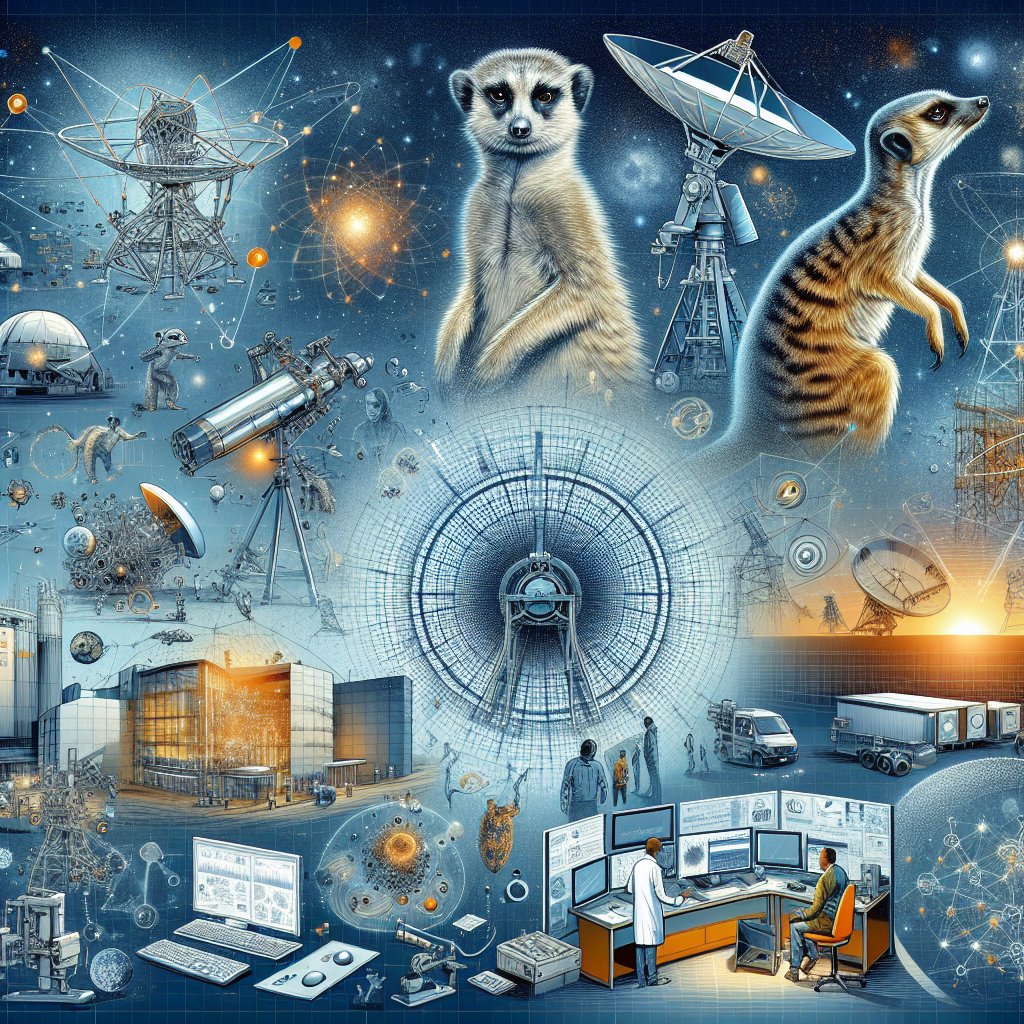Image created by AI
South Africa Aims to Be a Global Astronomy Powerhouse, Declares Science Minister
South Africa is ambitiously charting a path to be recognized worldwide as a central hub for astronomical research and facilities, as asserted by Science, Technology and Innovation Minister Dr. Blade Nzimande during the prestigious XXXII General Assembly of the International Astronomical Union (IAU) at the Cape Town International Convention Centre. Dr. Nzimande’s keynote address highlighted how the nation is leveraging cutting-edge projects like the MeerKAT radio telescope array and the innovative Square Kilometre Array (SKA) to bolster its contribution in the realms of astronomy and Big Data.
South Africa’s astronomical pursuits are not just scientific ventures but are integrated with national infrastructure development, clarifying the minister's vision of a holistic scientific ecosystem. Institutions like the South African Astronomical Observatory and the South African Radio Astronomy Observatory are pivotal in advancing technical skills. These projects underscore South Africa's capability in optical, infrared, and radio astronomical research, strengthening the training of a new generation of technicians and engineers.
The current policies underscore the development of robust high-speed data networks and scientific infrastructure, echoing the minister’s goals. Collaboration between the Department of Science, Technology and Innovation and the National Department of Tourism aims to cultivate science tourism. The department’s innovative approach includes initiatives such as the Presidential PhD programme, aimed at upskilling South African postgraduates abroad in high-tech sectors, also benefiting astronomy.
Dr. Nzimande also emphasized South Africa's role in bolstering the study of astronomy at the continental level, in partnership with the African Astronomical Society. He voiced his hope that the IAU General Assembly would underscore Africa's contributions to global astronomy. The event served as a bridge that connected African astronomers with the international community, showcasing indigenous astronomical knowledge and achievements.
Significantly, the minister accentuated the essential role of women in the advancement of scientific disciplines, highlighting the intersection of Woman’s Month in South Africa and underscoring the valuable contributions women have made - and must continue to make - in the field of science.
He reflected on the historical significance of astronomy in Africa, weaving a narrative that stretches from the survivalist sky observations of nomadic tribes to the seasonal guides for sedentary populations. The transformation post-1994 signifies a renaissance in South African astronomy, marked by groundbreaking instruments such as the Southern African Large Telescope and the MeerKAT radio telescope.
The evolution of the astronomical profession in South Africa from a relatively small community with only five radio astronomers among 60 in 1994 to over 300 astronomers today encapsulates the country's remarkable scientific growth. It is emblematic of a broader commitment to innovation, educational development, and global scientific collaboration.










